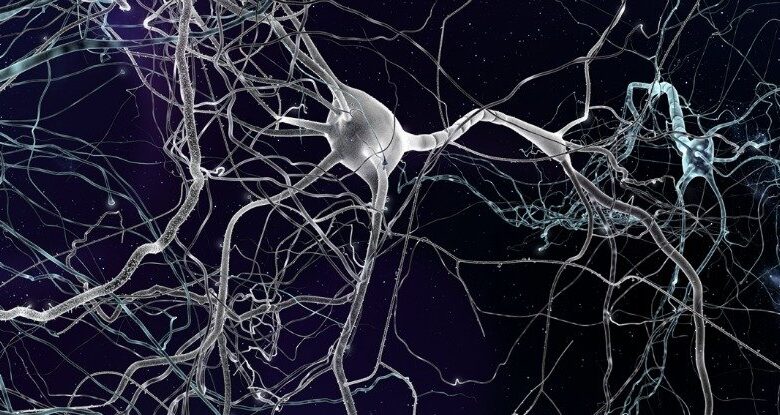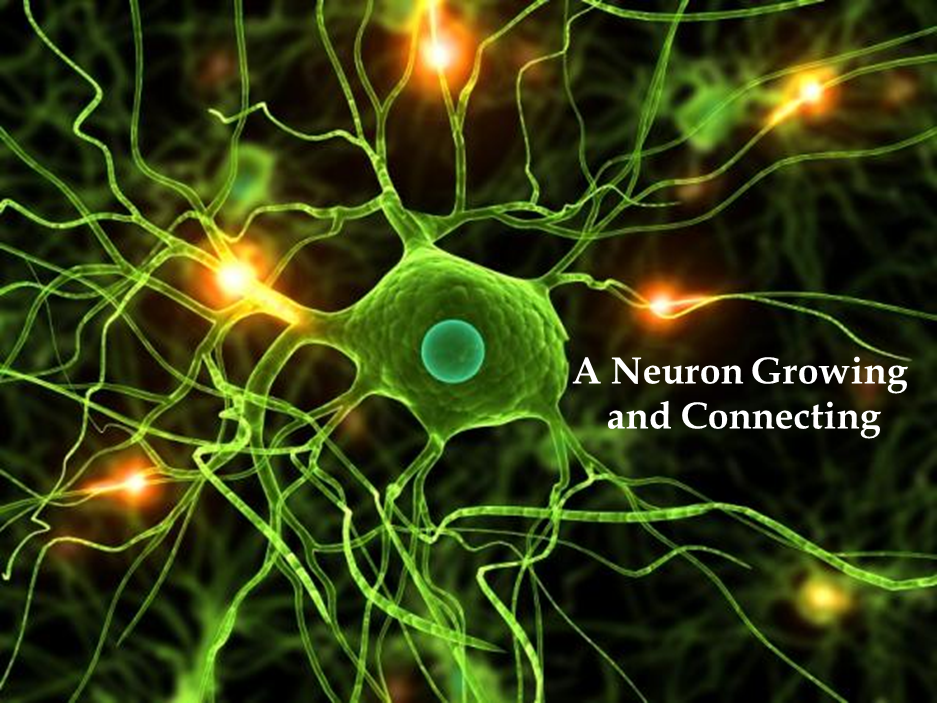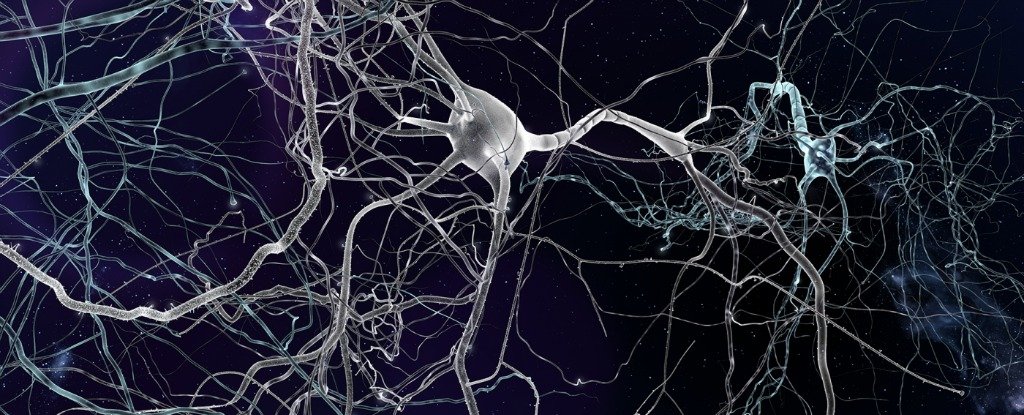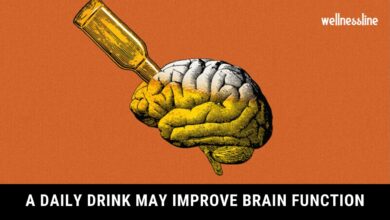
New brain cells continue to form even as you age, a fascinating process that challenges our understanding of brain development throughout life. This ongoing neurogenesis isn’t limited to childhood; throughout adulthood, our brains maintain a remarkable ability to create new neurons, impacting everything from cognitive function to resilience. This exploration delves into the science behind this continuous creation, examining the factors influencing this process and its implications for aging and overall brain health.
We’ll examine how lifestyle choices, like diet, exercise, and stress management, play a pivotal role in supporting this vital process. Understanding the relationship between neurogenesis and cognitive functions, from memory to learning, will provide a deeper insight into the remarkable plasticity of the adult brain. We’ll also discuss the potential of neurogenesis for recovery from brain injuries and address future research directions in this exciting field.
Neurogenesis Throughout the Lifespan

The human brain, a marvel of complexity, continues to adapt and evolve throughout life. One fascinating aspect of this adaptability is neurogenesis, the process by which new neurons are generated. While the popular image of a static, unchanging brain persists, research increasingly demonstrates that neurogenesis plays a crucial role in learning, memory, and overall brain health, even in adulthood.
This process is not limited to childhood; new neurons continue to be formed throughout the lifespan, influencing various cognitive functions.The mechanisms behind neurogenesis are intricate and involve a cascade of molecular events. Adult neurogenesis isn’t simply a continuation of childhood development; it’s a dynamic process that responds to environmental stimuli and internal cues. These mechanisms are finely tuned to maintain a delicate balance between neuronal production and elimination, ensuring optimal brain function.
Factors like stress, exercise, and learning experiences can all influence the rate and location of neurogenesis.
Neurogenesis: A Comprehensive Overview
Neurogenesis is the birth of new neurons, a process crucial for the development and maintenance of the nervous system. The process starts with neural stem cells, undifferentiated cells capable of dividing and differentiating into various types of neurons and glial cells. These stem cells reside in specific brain regions, often in close proximity to blood vessels, where they are exposed to growth factors and signaling molecules.
It’s fascinating how our brains, even as we age, continue to generate new neurons. This constant renewal is incredible, but consider the impact on new parents, who often don’t get a full night’s sleep for 6 years, as evidenced by this study new parents don’t get sound sleep for 6 years. While sleep deprivation undoubtedly affects cognitive function, it’s still important to remember that the brain’s remarkable ability to adapt and form new cells persists throughout life, even with these significant life changes.
Mechanisms of Neurogenesis in Adults
Several mechanisms contribute to neurogenesis in the adult brain. The process is initiated by the activation of neural stem cells, which undergo cell division to produce new progenitor cells. These progenitor cells then differentiate into mature neurons, a complex process involving the expression of specific genes and the development of neuronal structures like axons and dendrites. Growth factors and signaling molecules play a vital role in directing the differentiation and maturation of these new neurons.
These growth factors act like molecular messengers, guiding the development and survival of newly generated neurons.
Regions of Neurogenesis and Implications
Neurogenesis isn’t uniformly distributed throughout the brain. Specific regions, like the hippocampus and the olfactory bulb, demonstrate significant neurogenesis in adults. The hippocampus, crucial for learning and memory, is particularly active in this process. The implications of neurogenesis are profound. Maintaining a healthy level of neurogenesis may contribute to enhanced cognitive function, improved memory consolidation, and a greater resilience to stress and neurodegenerative diseases.
Understanding the nuances of neurogenesis is vital for developing therapeutic strategies to promote brain health and potentially mitigate the effects of age-related cognitive decline.
Stages of Neurogenesis
| Stage | Cell Type | Key Processes | Location |
|---|---|---|---|
| Neural Stem Cell | Neural Stem Cell | Self-renewal, division, and differentiation | Subventricular zone (SVZ) and subgranular zone (SGZ) of the hippocampus |
| Progenitor Cell | Progenitor Cell | Cell division and early differentiation | SVZ and SGZ of the hippocampus |
| Immature Neuron | Immature Neuron | Axon and dendrite growth, migration, synapse formation | Hippocampus, olfactory bulb |
| Mature Neuron | Mature Neuron | Integration into existing neural circuits, synaptic plasticity | Hippocampus, olfactory bulb, and other brain regions |
Impact of Lifestyle Factors on Neurogenesis: New Brain Cells Continue To Form Even As You Age
Our brains, remarkable in their ability to adapt and learn, continue to generate new neurons throughout our lives. This fascinating process, known as neurogenesis, is not static. It’s profoundly influenced by the choices we make, from the foods we eat to the way we manage stress. Understanding these influences is key to optimizing brain health and cognitive function as we age.Lifestyle factors play a pivotal role in regulating the rate and efficiency of neurogenesis.
The choices we make daily – dietary habits, exercise routines, and stress management strategies – all have a direct impact on the environment within the brain, influencing the production of new neurons and their integration into existing neural networks.
Impact of Diet on Neurogenesis
A balanced diet rich in essential nutrients is crucial for supporting neurogenesis. Different dietary components have varying effects on the process. For instance, foods rich in antioxidants, such as berries and leafy greens, can protect neurons from damage and promote a healthy environment for neurogenesis. Similarly, omega-3 fatty acids, abundant in fatty fish and nuts, are vital for neuronal structure and function, thus supporting the formation of new connections.
Conversely, diets high in processed foods, saturated fats, and sugar can hinder neurogenesis by creating an inflammatory environment that disrupts the delicate balance required for neuronal development.
It’s amazing how our brains continue to generate new cells even as we age! While researching the fascinating process of neurogenesis, I stumbled upon a question that intrigued me: is pita bread gluten-free? This question made me realize that even though our brains are constantly adapting, we still need to be mindful of the foods we consume, and understanding nutritional information is key to overall well-being.
So, the next time you think about your brainpower, remember those amazing new cells are still being made!
Impact of Exercise on Neurogenesis
Physical activity is a powerful stimulant for neurogenesis. Aerobic exercise, in particular, is associated with increased neurotrophic factors, proteins that promote the growth and survival of neurons. Activities like running, swimming, and cycling have been shown to enhance neurogenesis in various brain regions. Furthermore, resistance training can also contribute to improved brain health and neurogenesis, potentially by influencing blood flow and nutrient delivery to the brain.
Regular physical activity not only fosters the creation of new neurons but also strengthens existing connections, improving overall cognitive function.
Impact of Stress on Neurogenesis, New brain cells continue to form even as you age
Chronic stress, a common experience in modern life, can significantly impede neurogenesis. Stress hormones, like cortisol, can disrupt the delicate balance within the brain, inhibiting the growth and survival of new neurons. This disruption can have lasting effects on cognitive function and emotional regulation. Effective stress management techniques, such as mindfulness meditation, yoga, and deep breathing exercises, can help mitigate the negative impact of stress on neurogenesis by promoting a calmer internal state.
Correlation Between Lifestyle Factors and Neurogenesis
| Diet | Exercise | Stress | Neurogenesis Rate |
|---|---|---|---|
| Fruits and vegetables (e.g., blueberries, spinach), fatty fish (e.g., salmon), nuts | Aerobic exercise (e.g., running, cycling), resistance training | Mindfulness meditation, yoga, deep breathing exercises | Increased |
| Processed foods, sugary drinks, excessive saturated fats | Sedentary lifestyle | Chronic stress, lack of coping mechanisms | Decreased |
Neurogenesis and Cognitive Function
The continuous formation of new brain cells, or neurogenesis, isn’t just a phenomenon confined to early development. It’s a dynamic process that persists throughout our lives, influencing our cognitive abilities in profound ways. This ongoing generation of neurons plays a critical role in maintaining and enhancing various cognitive functions, from memory to learning and even emotional regulation. Understanding this intricate relationship is crucial for comprehending the aging brain and potential interventions for cognitive decline.
The Relationship Between Neurogenesis and Cognitive Abilities
Neurogenesis, particularly in the hippocampus and other brain regions associated with learning and memory, is directly linked to cognitive performance. The new neurons integrate into existing neural networks, potentially strengthening synaptic connections and improving information processing. This integration facilitates more efficient communication between different brain regions, thus enhancing cognitive function. This process is not static; it is a continuous interplay between neurogenesis, synaptic plasticity, and cognitive function.
Evidence of Neurogenesis’ Impact on Cognitive Functions
Extensive research provides evidence linking neurogenesis to specific cognitive functions. Studies have demonstrated a correlation between higher levels of neurogenesis and enhanced spatial learning and memory in animals. For instance, enriched environments that stimulate learning and exploration have been shown to boost neurogenesis in rodents, leading to improved performance in cognitive tasks. Further research in humans suggests similar patterns, though the direct causal relationship between neurogenesis and human cognitive function is still under investigation.
Furthermore, animal models indicate that neurogenesis may play a role in adapting to new environments and learning new skills.
Neurogenesis and Age-Related Cognitive Decline
Age-related cognitive decline is a complex issue with various contributing factors. Reduced neurogenesis, along with other changes in brain structure and function, is thought to contribute to this decline. Maintaining high levels of neurogenesis throughout adulthood may be crucial in preserving cognitive abilities as we age. Studies have explored potential interventions, such as lifestyle changes and specific treatments, to stimulate neurogenesis and potentially mitigate cognitive decline.
It’s fascinating how our brains, even as we age, continue to generate new cells. This ongoing neurogenesis is truly remarkable, but it’s important to consider the broader health picture. For example, recent research shows that hypertension in women has spiked a significant 70% in just 40 years, hypertension in women spikes 70 in 40 years , highlighting the crucial link between lifestyle factors and overall well-being.
So, while our brains are capable of amazing regeneration, it’s vital to focus on maintaining a healthy lifestyle to support this process and overall health.
This remains an active area of research.
Neurogenesis and Brain Injury Recovery
The potential role of neurogenesis in recovery from brain injuries is an area of intense interest. Studies suggest that neurogenesis may support the repair and reorganization of damaged neural circuits. New neurons can potentially integrate into existing networks, facilitating the restoration of lost functions. This process is not fully understood, but it holds promise for therapeutic interventions in patients with brain injuries.
Comparison of Cognitive Functions Affected by Neurogenesis Across Age Groups
| Age Group | Cognitive Function | Neurogenesis Impact | Supporting Evidence |
|---|---|---|---|
| Infancy/Childhood | Learning and Development | Neurogenesis is crucial for establishing fundamental neural networks, laying the foundation for future cognitive development. | Studies show a high rate of neurogenesis in early childhood, correlating with rapid learning and cognitive growth. |
| Adolescence | Abstract Reasoning and Decision-Making | Neurogenesis in prefrontal cortex contributes to developing higher-level cognitive functions. | Research suggests that neurogenesis in adolescence influences the maturation of cognitive control processes. |
| Adulthood | Memory Consolidation and Learning New Skills | Neurogenesis in the hippocampus supports the formation and consolidation of new memories. | Animal studies show that neurogenesis in the hippocampus is associated with improved spatial memory. |
| Older Adulthood | Maintaining Cognitive Flexibility and Processing Speed | Maintaining neurogenesis may help preserve cognitive flexibility and processing speed. | Research suggests that reduced neurogenesis in older adulthood is linked to age-related cognitive decline. |
Neurogenesis and Neuroplasticity
The remarkable ability of the brain to adapt and change throughout life is a testament to its incredible plasticity. This adaptability isn’t just about learning new skills; it encompasses the rewiring and restructuring of neural connections, a process deeply intertwined with the generation of new neurons. This dynamic interplay between neurogenesis and neuroplasticity is crucial for cognitive function and overall well-being.Understanding how these two processes work together is essential for comprehending the brain’s remarkable resilience and its capacity for lifelong learning and recovery from injury.
Neurogenesis, the birth of new neurons, plays a critical role in this dynamic. Neuroplasticity, the brain’s ability to reorganize itself by forming new neural connections, further enhances this adaptive capacity.
The Relationship Between Neurogenesis and Neuroplasticity
Neurogenesis and neuroplasticity are intrinsically linked. New neurons, generated through neurogenesis, provide a fresh pool of cells that can integrate into existing neural networks, potentially enhancing synaptic connections and overall brain function. These new neurons aren’t just passive bystanders; they actively participate in the formation and strengthening of neural pathways, influencing the brain’s structural and functional plasticity.
Mechanisms Underlying Neurogenesis and Neuroplasticity
The mechanisms underlying neurogenesis and neuroplasticity, while distinct, are intricately intertwined. Neurogenesis, primarily occurring in specific brain regions like the hippocampus and olfactory bulb, involves a complex series of cellular events, from neural stem cell proliferation to differentiation into mature neurons. Neuroplasticity, on the other hand, encompasses a broader range of mechanisms, including synaptic plasticity (changes in the strength of existing synapses), the formation of new synapses, and the elimination of unused synapses.
Contribution of New Brain Cell Formation to Adaptation
New brain cell formation contributes significantly to the brain’s ability to adapt and change throughout life. The addition of new neurons can enhance existing neural circuits, facilitating more efficient processing of information and potentially enabling the acquisition of new skills. This process is crucial for learning, memory formation, and emotional regulation. Furthermore, the presence of new neurons might contribute to resilience against age-related cognitive decline.
Interplay Between Neurogenesis and Neuroplasticity
“Neurogenesis and neuroplasticity are a dynamic duo, constantly influencing each other to shape the ever-changing landscape of the brain.”
Influence of Neurogenesis and Neuroplasticity on Each Other
| Neuroplasticity Mechanism | Neurogenesis Impact | Examples | Supporting Research |
|---|---|---|---|
| Synaptic plasticity (strengthening or weakening of existing synapses) | Influences the survival and integration of new neurons into existing circuits. | Learning a new language, mastering a musical instrument. | Studies demonstrating the correlation between learning and increased neurogenesis in the hippocampus. |
| Formation of new synapses | Provides new targets for newly generated neurons, leading to enhanced connectivity. | Developing new motor skills, navigating a new environment. | Research on the impact of environmental enrichment on neurogenesis and synapse formation. |
| Elimination of unused synapses | Creates space for new neurons and pathways, allowing for more efficient neural communication. | Adjusting to changes in daily routines, adapting to a new social group. | Studies examining the role of synaptic pruning in brain development and learning. |
| Neural stem cell activation | Creates a pool of progenitor cells that can differentiate into new neurons. | Experiencing stress, engaging in physical activity. | Research investigating the effect of exercise on neurogenesis and brain plasticity. |
Future Directions in Research on Neurogenesis
The fascinating journey of understanding how new brain cells form throughout life, known as neurogenesis, has opened exciting avenues for potential therapeutic interventions. Research in this field is rapidly evolving, pushing the boundaries of our knowledge and promising breakthroughs in treating age-related cognitive decline and other neurological disorders. This exploration delves into the promising future directions, highlighting potential implications and innovative approaches.Neurogenesis, the process of generating new neurons, is not just a phenomenon limited to early development.
It continues throughout adulthood, although at a slower pace. Understanding the intricate mechanisms driving this process and identifying factors that can enhance it are crucial for developing effective strategies to maintain brain health and combat age-related cognitive decline. Future research will likely focus on identifying specific pathways and triggers involved in adult neurogenesis, aiming to unlock the secrets of its regulation.
Potential Research Areas Focused on Understanding and Promoting Neurogenesis
A crucial area of future investigation is identifying the specific signaling pathways and molecular mechanisms that control neurogenesis in the adult brain. Understanding these pathways will provide valuable targets for therapeutic interventions aimed at boosting neurogenesis. Another critical focus will be on environmental factors that can influence neurogenesis, such as diet, exercise, stress levels, and social interaction. Research will investigate how these factors impact neurogenesis and explore ways to optimize these factors for improved brain health.
Investigating the impact of sleep on neurogenesis is another vital area. Sleep deprivation can disrupt various brain functions, potentially affecting neurogenesis. Understanding the interplay between sleep and neurogenesis is critical for developing strategies to promote optimal brain health.
Potential Implications for Developing Therapeutic Interventions
Discovering effective ways to stimulate neurogenesis holds significant implications for treating age-related cognitive decline and other neurological conditions. For example, if researchers identify specific growth factors or signaling molecules that promote neurogenesis, these could be targeted to stimulate the production of new neurons in the damaged areas of the brain. This approach could potentially restore lost cognitive function and alleviate symptoms associated with neurological disorders.
Further investigation into the neuroprotective effects of neurogenesis is essential. Neurogenesis may not only replace damaged neurons but also enhance the resilience of existing neurons, making them more resistant to damage and disease.
Harnessing Neurogenesis to Enhance Cognitive Function
Future research will explore how neurogenesis contributes to various cognitive functions, such as learning, memory, and attention. Understanding these relationships could lead to strategies for enhancing cognitive function by stimulating neurogenesis. Identifying specific brain regions where neurogenesis is most active and crucial for particular cognitive processes will be vital for developing targeted interventions. For instance, stimulating neurogenesis in the hippocampus, a region crucial for memory formation, could lead to improved memory performance.
Novel Techniques and Technologies for Investigating Neurogenesis
Advancements in neuroimaging techniques, such as high-resolution microscopy and advanced MRI, will be instrumental in studying neurogenesis in real-time. These techniques allow researchers to visualize the process of new neuron formation in the living brain, providing detailed insights into the cellular and molecular mechanisms involved. Furthermore, sophisticated genetic tools and manipulation techniques will be essential to investigate the role of specific genes and proteins in neurogenesis.
For instance, gene editing technologies can be used to manipulate specific genes involved in neurogenesis, enabling researchers to study their impact on the process.
“Our current understanding of neurogenesis suggests a dynamic interplay between genetic predisposition, environmental factors, and lifestyle choices. Future research will focus on unraveling the intricate mechanisms behind this process and harnessing this knowledge to develop effective strategies for promoting brain health throughout the lifespan. These efforts could potentially revolutionize the treatment of age-related cognitive decline and other neurological disorders.”
Closing Summary

In conclusion, the continuous formation of new brain cells throughout our lifespan, a phenomenon known as neurogenesis, offers a compelling perspective on brain health and plasticity. The interplay between lifestyle factors, cognitive function, and neuroplasticity reveals the remarkable resilience and adaptability of the human brain. This ongoing research holds immense potential for understanding and addressing age-related cognitive decline and promoting overall brain well-being.
Further exploration promises to uncover even more insights into the fascinating ways our brains adapt and grow throughout our lives.



